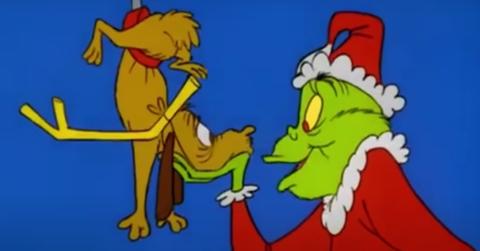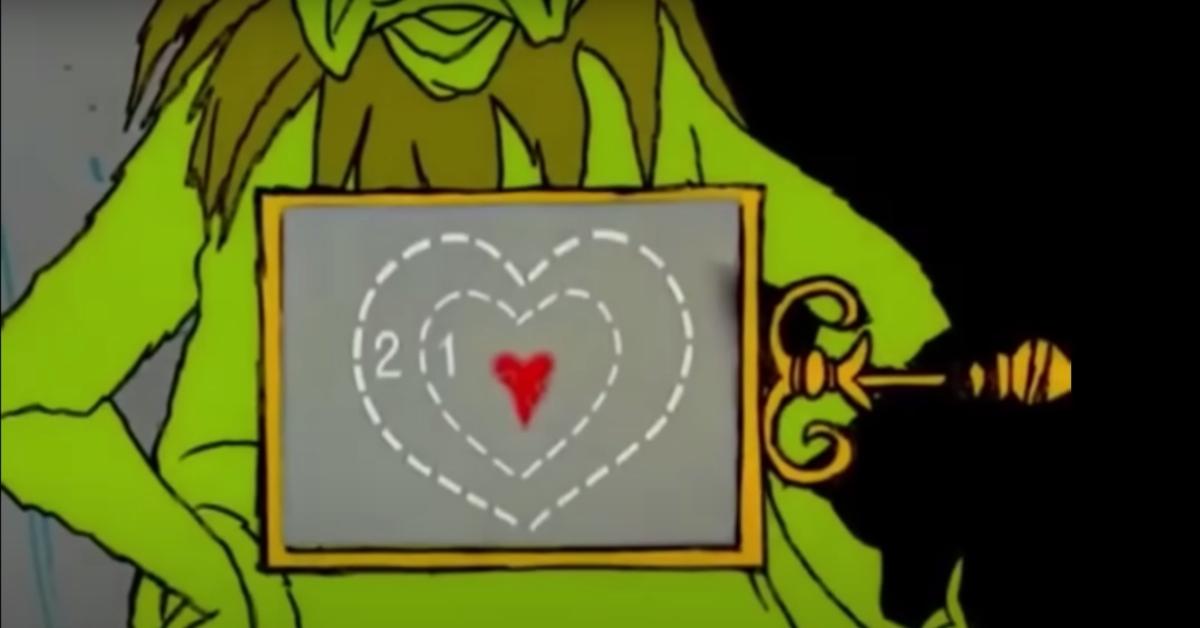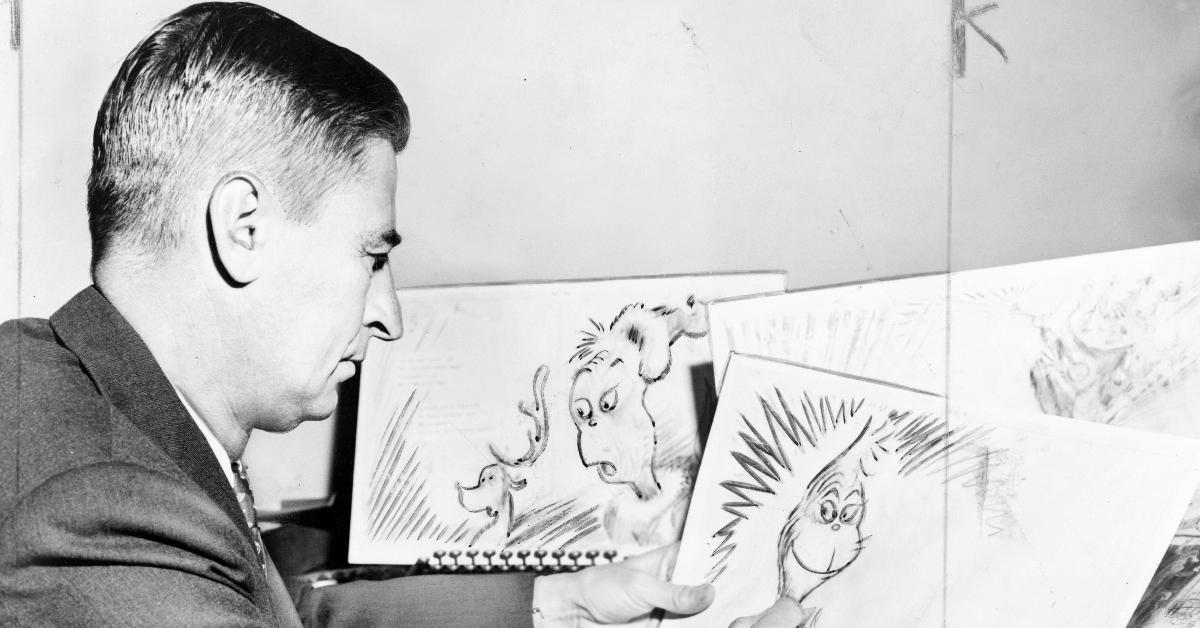Why Does the Grinch Hate Christmas? Maybe He Was Born This Way
Published Dec. 19 2023, 1:39 p.m. ET

The Grinch and his dog Max
The Gist:
- When it comes to Christmas, The Grinch has become as ubiquitous as Santa Claus.
- Unlike Santa, The Grinch hates Christmas and we know why.
- The Grinch was based on Dr. Seuss himself, the man who brought him to life.
When one thinks of Christmas, the first fictional person that undoubtedly comes to mind is Santa Claus. What's not to love about a "jolly old elf" whose sole purpose in life is delivering toys to children all over the world in the span of one night. Sure, things get a bit sticky when his gift-giving is contingent upon how good a child is but for the most part, we love that weird little criminal who breaks into our homes once a year.
In some circles, on the other side of Santa's good coin is Krampus who brings coal to all the bad children. Perhaps somewhere in the middle, we find the Grinch. We first met this festive wet blanket in the 1957 children's book How The Grinch Stole Christmas! by Dr. Seuss. Since that initial publication, he has been brought to life in many ways but one thing stays the same: the Grinch hates Christmas. Is this a trauma response or does he have a real reason? Here's why he's a mean one, that Mr. Grinch.

The Grinch quite literally stealing Christmas!
Why does the Grinch hate Christmas? It's all in the heart.
When it comes to despising a holiday that is built on merriment and kindness, I usually err on the side of childhood trauma. After all, no one is born hating Christmas unless, of course, you're the Grinch. You see he lived just north of a place called Whoville which was populated by, you guessed it, Whos. the Grinch looked a bit like the Whos in Whoville except for one glaring difference, he is green. No really, the Grinch is literally green.
I always assumed this might be a Gollum from The Lord of The Rings situation. By this I mean that perhaps the Grinch began life as a Who but was slowly consumed by anger until he became a twisted version of himself. Who can say? What we do know is he cannot stand the Whos's love of all things Christmas. Two working theories are that his rage stems from ill-fitting shoes that are entirely too small or it's a head that "isn't screwed on just right."
In all likelihood what's really going on with the Grinch is something he can't control at all. Unfortunately for him, he has a heart that is "two sizes too small." Regardless of why he is the way he is, the Grinch spends the majority of his time staring daggers down at the Whos of Whoville "with a sour Grinchy frown."

The Grinch just needs more heart!
The Grinch was based on Dr. Seuss himself.
According to The San Diego Union-Tribune, Dr. Seuss based the Grinch on a rather dour face he made in the mirror one day. Fun fact, in Dr. Seuss's original illustrations, the Grinch was not actually green. This didn't come about until the popular animated special that we all know and love, which aired in 1966. Perhaps these animators widely discerned that the Grinch was actually green with envy. He wanted what the Whos had but didn't know how to get it.
We have a bit of writer's block to thank for the birth of the Grinch. "I was brushing my teeth on the morning of the 26th of last December when I noted a very Grinchish countenance in the mirror," said Dr. Seuss to Redbook during a 1957 interview after the magazine published that now famous story a month before the book's release.

Dr. Seuss illustrating 'The Grinch.'
Why was Dr. Seuss grimacing? He believes it was because "something had gone wrong with Christmas, I realized, or more likely with me. So I wrote the story about my sour friend, the Grinch, to see if I could rediscover something about Christmas that obviously I’d lost." It's possible his sour attitude was from a totally different story he had been struggling with.
He was tasked with writing something that "first graders can’t put down," but was limited by the words he could use. Apparently his publisher provided Dr. Seuss with a list of 250 words that all 6-year-olds should be familiar with. Despite seeing this as a challenge, Dr. Seuss was miserable. His breakthrough came when he rhymed cat with hat and the rest, as they say, is history.